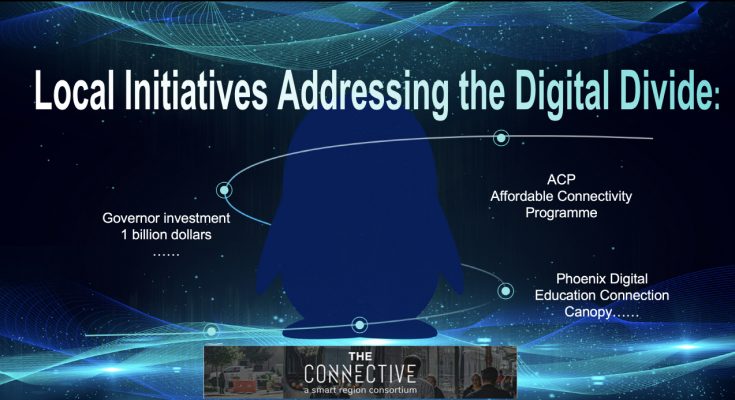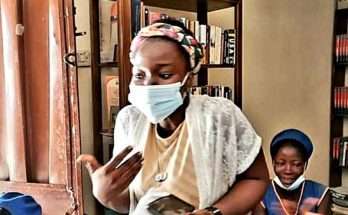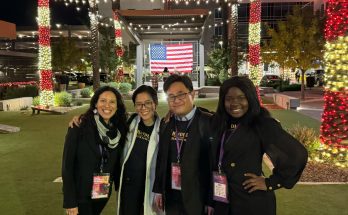<Credit: PHX East Valley>
As the Head of the PR Department at the Digital Development Ministry of the Kyrgyz Republic, I am spearheading initiatives to eliminate digital illiteracy through an impactful communication strategy. During my Humphrey Fellowship Program, I am dedicated to studying the United States’ successful approaches to bridging the Digital Divide. All my projects revolve around investigating and learning from the American experience.
Having the privilege to reside in Phoenix, Arizona, and study at Arizona State University (ASU), ranked No. 1 in innovation among American universities, I commenced my exploration with a focus on Phoenix and its noteworthy practices in narrowing the digital gap.
As Phoenix continues to position itself as a hub of innovation, small communities within the city find themselves grappling with digital divide. While towering tech companies thrive, some residents still lack access to essential digital resources and skills. It’s a challenge that Phoenix is determined to address.
Phoenix, a city renowned for its technological advancements and innovation, is also facing a digital divide that has become more pronounced during the COVID-19 pandemic. The digital divide, a significant concern from cities like Phoenix, where 20% lack home broadband, to rural areas like Apache County, where 99% lack it, persists.
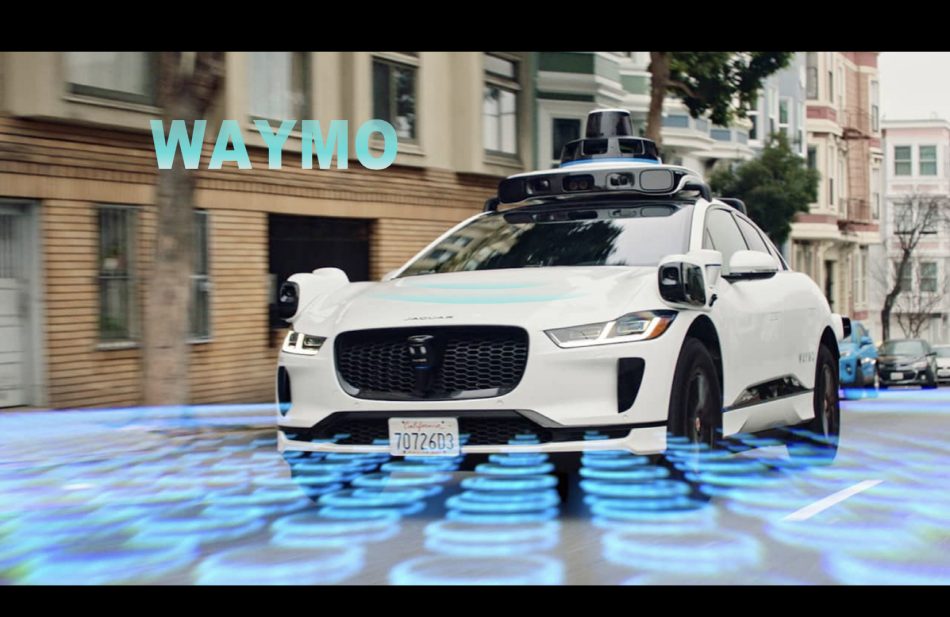
Common Sense research has shown that the digital divide affects every state in the country, mostly impacting underserved households that lack service in urban, suburban, rural, and tribal communities. In Arizona, 335,558 students (29%) and 4,757 teachers (10%) lack adequate internet access.
The need for innovative solutions is evident, and community organizations are actively working towards closing the digital gap.To combat this challenge, “The Connective,” a smart region consortium, initiated the greater Phoenix broadband task force. This consortium handed over the reins to partners like ASU Enterprise Technology, Sun Corridor Network, and the Digital Equity Institute, all committed to ensuring equitable access to broadband and digital literacy in the Greater Phoenix region.
Arizona State University secured $34.6 million in funding from Maricopa County, a significant step towards digital equity. Governor Katie Hobbs announced a monumental investment of $993.1 million in infrastructure, aiming to provide affordable and accessible broadband across the state. The collaborative efforts of government, industry, and academic leaders are making a tangible impact on the digital landscape.
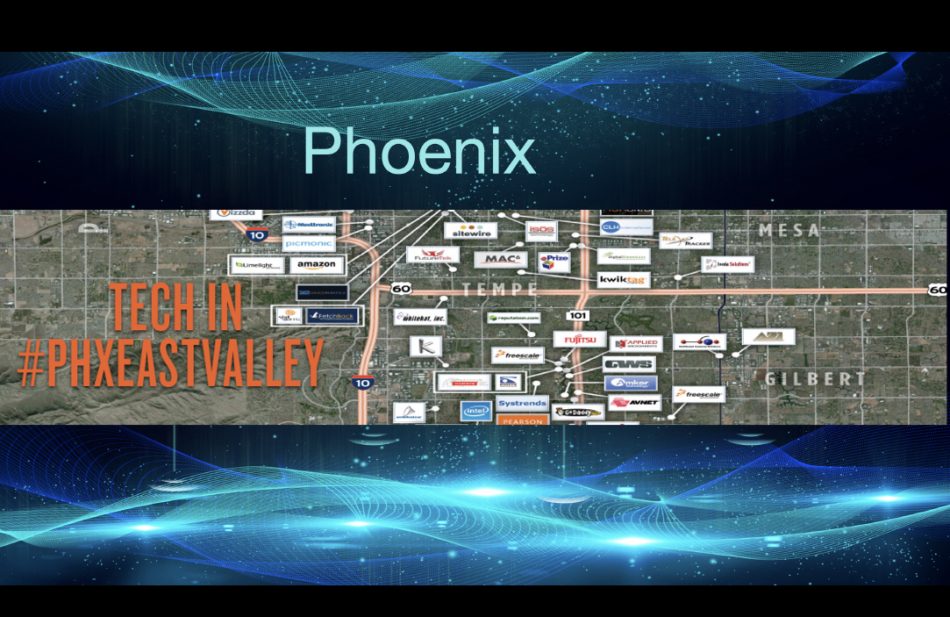
Phoenix introduced the City Manager’s Performance Dashboard, an online tool providing comprehensive information about city services. Digital tools like the myPHX311 app and the Open Data portal were enhanced to make city services more accessible. Common Sense Media launched a campaign to create awareness about the Affordable Connectivity Program (ACP), providing financial relief for internet services and devices.
As Phoenix takes bold steps to bridge the digital divide, it serves as a model for other cities grappling with similar challenges. The collaboration between government, academic institutions, technology companies, and community organizations underscores the collective commitment to digital equity.
The digital divide is not merely an infrastructure gap but a financial one, disproportionately affecting communities of color and those in poverty. By addressing issues of affordability, accessibility, and digital literacy, Phoenix is paving the way for a future where technology benefits all residents, regardless of their socioeconomic background.
As the city moves forward with these initiatives, it sets an example for the nation, demonstrating that with concerted efforts and strategic investments, the digital divide can be bridged, ensuring that the benefits of innovation reach every corner of our society.

